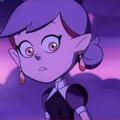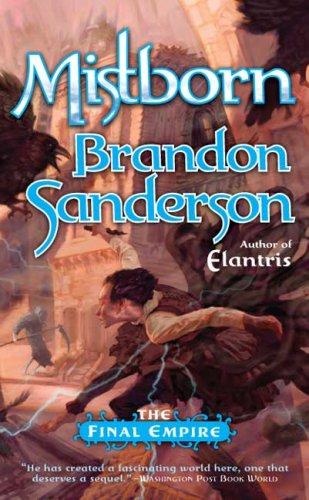Orlion reviewed The Final Empire by Brandon Sanderson (Mistborn, #1)
Review of 'Mistborn' on 'Goodreads'
4 stars
Brandon Sanderson appears to be one of those authors that have an arrogant sense of how great a writer they are. Some of his fans definitely believe he's blazing trails in contemporary fantasy. This makes the reading of this book, to me, a delicate business, since aside from judging the book on its own merits, I find myself judging it based on what the author claims in his vanity.
So I will react to that first. This novel is not revolutionary. You do not get to say that if you follow the ABC Guide to Writing Fantasy Using Established Conventions. Let's check them off, shall we? The main protagonist, Vin, comes from fairly humble background. Check. It is discovered that she actually is special and has powers which will be used to shape events. Check. Her background is such that she really knows very little of the world, so the reader gets to learn about the world step by step with her. Check. The power turns out to belong only to people with noble blood. This means Vin is not really a peasant, but a 'princess'. Check. There's the standard teacher/parental figure that teaches her to come into her own and carries all the consequences of such teachings. Check.
What about the magic system? Surely that's revolutionary, right? Any magic system ought to be a way to empower some if not all of the characters in a fantasy novel, which Allomancy does. It also should have a sense of wonder. Here, I believe the system is lacking. It's too structured to impart this wonder. There are rules to Allomancy, and they must be followed, dammit! However, at least the wonder was sacrificed for something else: a means of simplifying the writing of the action scenes and making them more suspenseful. Further, such a stringent system allows for the avoidance of deux ex machina resolutions, though at the same time you open yourself up for lame endings that, though logical within the story, do not impress. Further, if you info dump the reader with information and then add in some new information very important to the story, it can be jarring and leave the reader wandering where it came from.
For the most part, then, revelations result not from an organic reveal, but from being introduced to information that had previously been withheld. Sanderson does sprinkle little hints here and there, but they are so far from the actual revelation at times that it takes a moment to realize that Sanderson is not making up rules as he goes along.
Which seems to be as good a point to start critiquing the plot of the book. This plot is fast paced, with just enough going on to hold the reader's interest without boring or overloading them. The threat that the protagonists face is always treated as a very great threat, and not something that could be overcome easily. In the end, it's one of those conflicts that ultimately seem like they can only be resolved with insane planning and a decent share of luck.
Once again, the magic system is too structured and set about with rules to be interesting. Sure, it involves metals, but you pretty much understand it within the first half of the book. What it does make for is a good in-story excuse to have the great action scenes that are in the book.
Overall, it is a very enjoyable book with a satisfying, if a little befuddled, ending. It further hints at other, greater threats that will no doubt be addressed in the future installments. It is not a revolutionary book of fantasy, but it is a good one, and I will definitely continue the trilogy.
3.5 stars.

